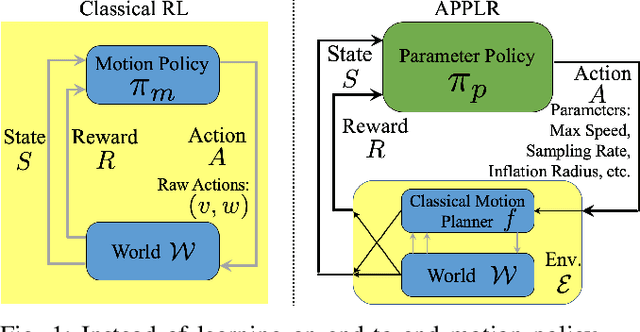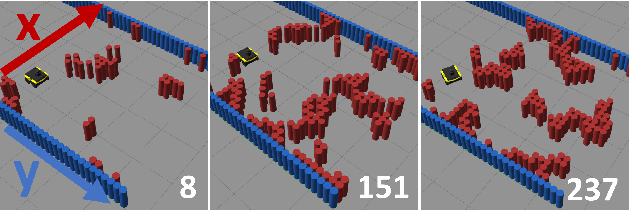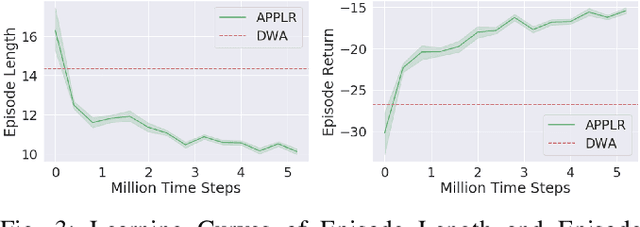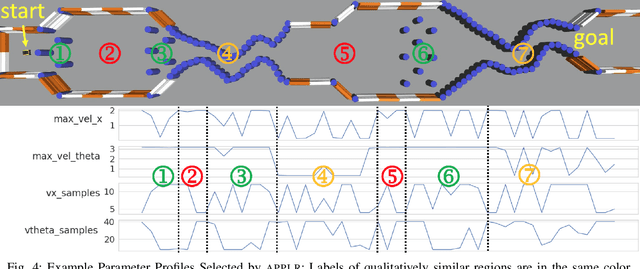APPLR: Adaptive Planner Parameter Learning from Reinforcement
Paper and Code
Nov 01, 2020



Classical navigation systems typically operate using a fixed set of hand-picked parameters (e.g. maximum speed, sampling rate, inflation radius, etc.) and require heavy expert re-tuning in order to work in new environments. To mitigate this requirement, it has been proposed to learn parameters for different contexts in a new environment using human demonstrations collected via teleoperation. However, learning from human demonstration limits deployment to the training environment, and limits overall performance to that of a potentially-suboptimal demonstrator. In this paper, we introduce APPLR, Adaptive Planner Parameter Learning from Reinforcement, which allows existing navigation systems to adapt to new scenarios by using a parameter selection scheme discovered via reinforcement learning (RL) in a wide variety of simulation environments. We evaluate APPLR on a robot in both simulated and physical experiments, and show that it can outperform both a fixed set of hand-tuned parameters and also a dynamic parameter tuning scheme learned from human demonstration.
 Add to Chrome
Add to Chrome Add to Firefox
Add to Firefox Add to Edge
Add to Edge